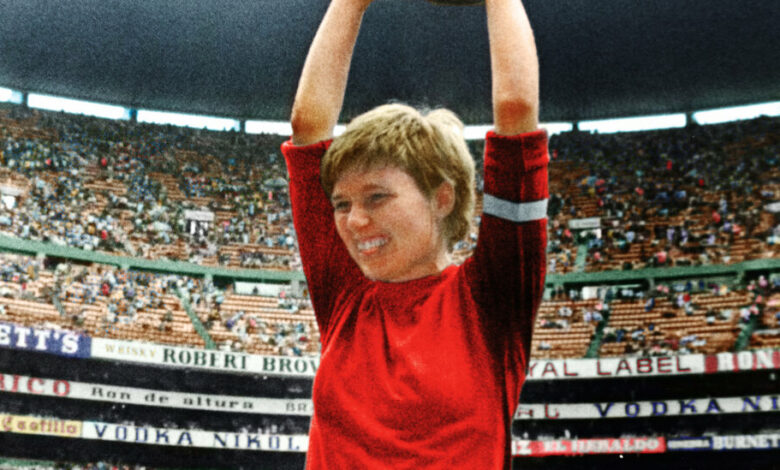‘Copa 71’ and the hidden history of women’s football

“Copa 71” opens with Brandi Chastain, the two-time Olympic gold medalist and legendary U.S. women’s soccer player, staring at a screen. “This is incredible,” she says, looking at what the filmmaker has just handed her: footage of a stadium full of people cheering at an old tournament. At first she thinks it’s a men’s event. Then, as the players stream away, she realizes that the athletes are women. “Why didn’t I know about this?” Chastain asks in dismay. “It makes me very happy and quite furious.”
That’s a nice summary of the effects of watching “Copa 71” (in theaters and on demand), directed by Rachel Ramsay and James Erskine. The film tells the story of the almost forgotten 1971 Women’s World Cup, held in Mexico City and Guadalajara, which was beautifully captured on film that was not seen for half a century.
The tournament was actually the second event organised by the Federation of Independent European Female Football, the first having taken place a year earlier in Italy. But those details are less important than the context. At the time, football (or soccer, as most of the film’s participants naturally call it) was still considered a male sport, and women who played it were subjected to a rich variety of snide and suspicious comments. Aside from the cultural pressure, FIFA, the governing body for what was then a male-only game, was on a mission to prevent women from participating in international football in an organised manner. According to the film, FIFA’s move was as much about retaining power as it was about the game itself.
All of this is laid out in “Copa 71,” with the help of a few historians and some of the athletes who competed in the international tournaments. Their memories, alongside images of a huge arena full of cheering fans of all ages and genders, make this feel like a sports documentary from an alternate universe — especially since it would be another 20 years before FIFA would finally authorize women’s soccer to compete internationally.
The 1970s tournaments took place at a time of increasing global activism for women’s rights. While the tournaments were clearly part of that movement, the players did not necessarily see themselves as activists. They just wanted to play. And this baffled observers, often men, who could not imagine that women simply wanted to do something, regardless of men’s involvement or opinions.
This emerges in the film as the veterans of 1971 offer a series of reflections on what it meant to be there, often with a sense of casual practicality. As one athlete, Birte Kjems of Denmark, notes, “We didn’t play football because we wanted to act like men. I played football because I enjoy playing football.”
‘Copa 71’ is captivating, but it struck me that this film, like another documentary about a forgotten moment in history – the Oscar-winning ‘Summer of Soul’ (2021) – reveals the power of capturing history for future generations. Without the footage of the 1971 tournament we wouldn’t have this film. Giving people a way to see history, not just hear about it, highlights how exciting it was at the time and also how strange and significant it is when we only learn about it five decades later. Cameras may seem ubiquitous these days, but it makes you wonder what kind of half-hidden gems will change our sense of history in the future.




